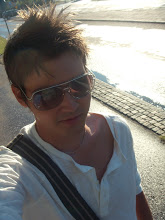It didn’t take long for the victorious humans to ravage the wreckage of their would be invaders. Not only their vessels and weapons contained technology that was previously unseen and unknown to the humans but their lifeless bodies as well.
They hadn’t managed to capture a single extra-terrestrial being alive. A fact that didn’t slow down the humans much. They might have been split up before, fighting over the smallest things, such as race, land masses or religion. But they now had an external force that threatened their very existence as a species. Something to unite them all under one flag. And such they did. It didn’t take long until they had all agreed on the same thing. The only thing they could do to preserve their human race and make sure it was safe was total universe domination.
And they researched. Stealing, salvaging and understanding something new takes a surprisingly short time when you have a goal in mind. The collective human knowledge about the world and universe around them grew at an exponential rate. It took less than thirty years until they had perfected their stolen tech. Five years more and they could implement it.
Life expectancy was now closer to infinity than it was to our starting point. With all the nanotech, body augmentations, bio-genetic computers and cyberbrains, it was almost harder to die than it was to be born. Yet humans still bred like they’ve always done. Some parts of their human condition could never be erased no matter how hard they tried.
So they expanded. The human need to expand had always been there, since the very beginning when they fought the neanderthals. It was ingrained both in their genetic code as well as their culture. With the implementation of the stolen technology this had become a rather mundane exercise for them. World hunger was eradicated just forty years after the war with the help of bioengineering, terraforming and improved geopolitics. Food production was increased tenfold if not more. The need for personal gain from political corruption was eradicated. Automatisation of more or less every mundane thing in the world meant that the people were able to do whatever they wanted. No more farming, no more mining, no more building for the normal person yet they still had a steady income of raw materials.
So they built. Cities covering entire countries cropped up. Farms moved from land to water. Nanotechnology and supercomputers made sure their air and water was clean and the world population was fed. Yet this wasn’t enough. Not even close. So they built even more. Space ships not much unlike the ones that had once come to destroy their world. Floating cities high above the atmosphere.
It didn’t take long until the population inhabiting the sky outnumbered their brethren on the ground. Neighbouring planets and celestial bodies became colonised not only by humans, but by machines as well. Machines that extracted the resources and sent them towards the ever growing sky cities.
The humans soon outgrew their own world, having placed restrictions to preserve their own solar system, and with advances on the salvaged warpdrive technology they set out to colonise their neighbouring solar systems. Connecting all their worlds with this improved warpdrive system that was not much unlike an old TV-show that had been broadcasted on their planet many years before. Yet greater in both scale and ingenuity.

